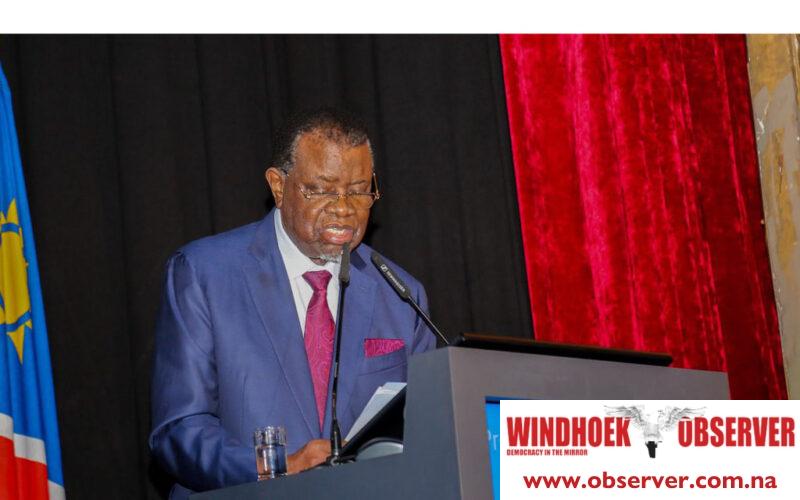Niël Terblanché
Namibia, like many other developing countries, is disproportionately affected by the impacts of climate change despite contributing the least to the cause thereof.
“The urgency of the world’s response to the phenomenon cannot be overstated. Our responsibility as leaders is clear – to safeguard our planet, preserve biodiversity, and ensure the well-being of our people. We must acknowledge the principle of common but differentiated responsibilities and respective capabilities,” President Hage Geingob said while delivering an address at the summit of leaders of the G77 and China.
The G77 and China summit occurred during the COP 28 conference in Dubai where the President expressed his gratitude to the government of the United Arab Emirates for bringing together leaders from diverse nations, united by a common commitment to addressing the pressing issue of climate change.
President Geingob reiterated the disproportionate impact of climate change on developing countries, despite their minimal contribution to its causes.
“Namibia’s people are deeply intertwined with their environment, making them particularly vulnerable to the consequences of climate change. Rising temperatures, changing precipitation patterns, and more frequent extreme weather events are posing increasingly severe challenges,” President Geingob said.
He stressed the significance of the G77 and China which represents a substantial portion of the global community, and called for unity in taking bold and concerted action, transcending individual interests, for the collective good of the planet.
He urged developed nations to fulfil their commitments by providing concrete, long-term targets to reach the minimum goal of $100 billion per year from 2025 onwards.
The President also stressed the critical need to allocate funds between adaptation and mitigation, with a significant increase in grant-based support for adaptation, especially for the most vulnerable nations.
He also stressed the vital importance of accelerating climate technology transfer for shared success and called for creating access to information and knowledge on climate technologies, fostering collaboration among stakeholders.
“Better coordination between operating entities, as outlined in UNFCCC Article 4.5 and the Paris Agreement Article 10 is essential,” he said.
President Geingob advocated for the development of a global goal for adaptation, with an equal split of climate finance between adaptation and mitigation.
He proposed that the proceeds from the global carbon market under the Paris Agreement should contribute to the Adaptation Fund, supporting projects in developing countries.
President Geingob urgently called for the operationalization of the Fund on Loss and Damage, particularly for vulnerable developing countries facing the irreversible impacts of climate change. The historic fund was created at the start of the COP 28 conference.
“The response to climate change must transcend national borders and involve open dialogue, knowledge sharing, and mutual support in implementing effective climate policies in the Global South. The fight against climate change is not a burden but a shared responsibility and an opportunity for positive transformation,” he said.
President Geingob reiterated Namibia’s commitment to environmental stewardship by developing a green hydrogen industry, explicitly aiming to contribute to the global decarbonization of industries.
He urged leaders to seize the moment of the G77 and China summit to reaffirm their shared commitment to combat climate change and advance sustainable development.
“Namibia looks forward to collaborative efforts with the international community to build a more resilient, equitable, and sustainable world,” he said.
He also commended the government of the United Arab Emirates for convening leaders from diverse nations at the G77 and China summit, all united by their common commitment to addressing climate change.




